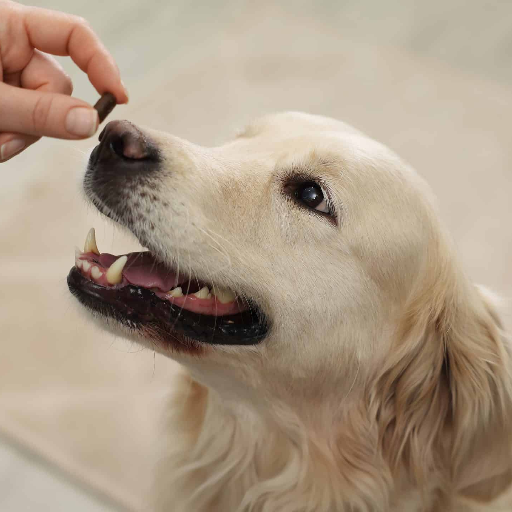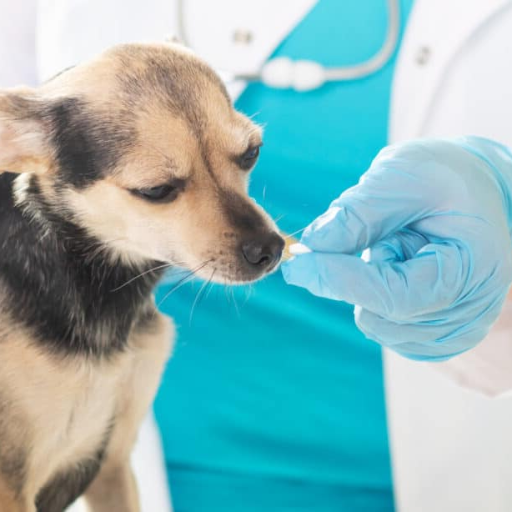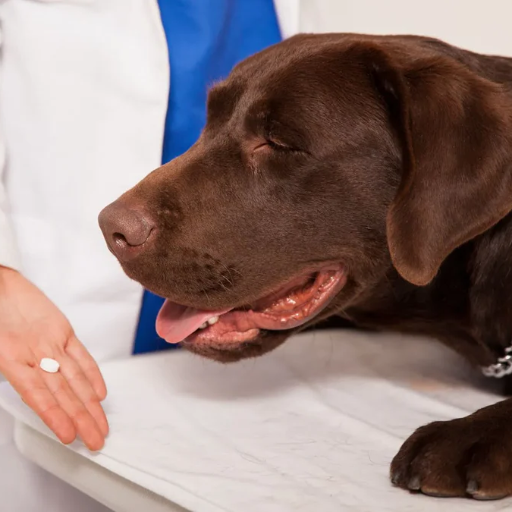Ivermectin is a household name in treatment of infestations and parasitic organisms, especially in moder veterinary medicine for canines. Ivermectin has gain popularity owing to its ability to treats heartworm disease, mites and even some intestinal worms, thus helping making the medicine a common recommendation for preventative care in dogs. However, as much as its outing is useful, the medicine can have dangerous outcomes when administered incorrectly or rubs ineffectively against anticipated outcomes. The following budget serves as a turnkey guiding aid in understanding the administered dose of Ivermectin for dogs with respect to what works and what does not and the associated risks of it. It does not make a difference if you have never used this medication or want further explanation, this article will serve as your guiding pillar in making the right healthcare decisions for your dog.
What is the correct ivermectin dosage for dogs?

How do clinicians determine the ivermectin dosage for dogs by their weight?
Ivermectin dosage for dogs is calculated with the respective weight of the dog in mind to guarantee safety and effectiveness. The primary suggested dose for heartworm prevention is 6 micrograms of the drug per kilogram of body weight during a month period. Other case specific uses such as mite or some parasites management may require different dosage that should be established by a nine doctor. Proper scale measurements and professional help are an absolute prerequisite for a dosage where your dog is not under or over dosed.
What are the suggested doses for various treatments?
Depending upon the condition, recommended doses of Ivermectin for treating dogs may differ. For prevention of heartworms, the most common use of ivermectin, the suggested dosage is 6 mcg/kg bodyweight, administered orally once a month. For the treatment of sarcopic mange, or demodectic mange (caused by mites), higher doses may be administratively prescribed, typically in the range of 0.2 – 0.4 mg/kg of body weight, often given on a weekly/biweekly basis. When managing intestinal parasites such as hookworms or roundworms, specific dosing will depend on the type of infestation. In such instances, a treatment plan has to be developed by a veterinarian. In any case, irrespective of condition being addressed, always adhere to your veterinarian’s recommendations as over use or inconsistent dosing have lead to severe toxicity, especially with certain breeds such as Collies or Shetland Sheepdogs that are genetically sensitive towards Ivermectin.
What is the dosage difference between oral and injectable ivermectin?
As for the dosage instructions pertaining to oral and injectable ivermectin, I tend to follow what my veterinarian recommends. For oral use, ivermectin is dosed by weight and then given in tablet or liquid form. It’s easy to administer which is why it is mostly used for heartworm prevention where I simply give it once a month. Injectable ivermectin, on the other hand, may have more flexible guidelines. It is usually dispensed for severe infestations like mange or certain parasites, and the dosage frequency and quantity are monitored closely by my veterinarian. Considering that injectable ivermectin is administered into the subcutaneous tissue, I never self medicate and make sure that a medical professional does as it can cause problems with dosing or allergies, etc. Some precautions I always take is not self medicating, and only following what my vet prescribes so that my dog’s health remains in shape.
How is ivermectin used to prevent heartworm in dogs?

How much is enough when it comes to taking heartworm medications?
For heartworm prevention dosage, It is given every month, and the treatment is usually in the form of an oral tablet or chewable. The dose is generally established by your pet’s weight and should be the precise amount recommended by your veterinarian. Monthly teeth cleaning guarantees this heartworm disease get its protection regularly.
How frequent should the administering of ivermectin be conducted to prevent heartworm?
Heartworm preventative medications like ivermectin are usually prescribed to be taken once a month. Sticking to this schedule helps to ensure that the heartworm larvae your dog might be infected with from mosquito bites during the preceding month will not be able to mature and multiply. Irregular intake of the drug can lead to a sophisticated infection, therefore, Please abide the recommended monthly intake schedule. If you’re concerned about your dog’s heartworm prevention, discuss when to start with your veterinarian and be sure to follow the instructions.
Is it possible to use ivermectin for existing heartworm disease?
While it may form a part of some protocols aimed at preventing further infection, as well as eliminating microfilariae in the blood stream, it does not take care of the adult heartworms that are already in the heart and lungs. These adult heartworms need to be treated in a more sophisticated way, usually with the use of melarsomine injections combined with severe activity restrictions to eliminate the risk of these activities causing problems. My first point of contact should always be my veterinarian, who will suggest the best course of action with the least risk to my toddler if a diagnosis of heartworm disease is made.
What are the uses of ivermectin for treating mange in dogs?

How much ivermectin should be prescribed for treating demodectic mange?
For demodectic mange, the amount of ivermectin to be prescribed depends on the weight of the dog and the protocol your veterinarian has prescribed. It is generally given in small amounts on a daily basis for several weeks. Always adhere to your veterinarian’s prescriptions to avoid the risk of toxicity.
What is the ideal length of treatment for mange?
The treatment length for any type of mange differs based on the severity of the infestation, and the responsiveness of the particular dog to the therapy. For example, in the case of demodectic mange, it is usually treated for a number of weeks or months in order to eliminate all the skin mites. Advanced skin scraping or other methods of diagnostics are usually performed at intervals during the treatment to determine if the infestation has completely cleared. Always follow the advice of your veterinarian, as they are trained professionals who are equipped to deal with such issues. Stopping the treatment one or two weeks prior to the doctor’s advice can lead to a resurgence of the issue which is why regular consultation with your veterinarian is essential.
Did you know some dogs could benefit from mange treatment other than ivermectin?
In case my dog had a condition like the one which made him sensitive to ivermectin, first thing I would do is speak with the vet in detail regarding alternative treatment plans that are both safe and effective. Perhaps milbemycin oxime could be deployed, it is a newer drug used for the treatment of mange which in some cases is safer to use for a certain breed of dogs. Also, some people may suggest the use of topical moxidectin or selamectin as alternatives. In some cases, pediculicidal shampoos and dips may also provide relief to the condition and hence could be prescribed. Adhering to my veterinary doctor’s instruction to the letter would be important just as follow up appointments and visits would be to monitor the situation.
How effective is ivermectin for treating mites and other external parasites?

How much ivermectin should I give my dog for ear mite treatment?
The standard dosage of ivermectin for ear mite treatment in dogs is proportionate to the dog’s weight, at 0.2 to 0.4 mg per kilogram which could one either take orally or through an injection. Instructions from a qualified veterinarian determine which route to go. Like all other treatments though, it’s best to consult a veterinarian to avoid the potential risks associated with Iverment use with sensitive dog breeds.
Can Ivermectin be used to treat scabies in dogs?
Ivermectin is indeed effective in the treatment of scabies in dogs since it is active against the mites that cause this condition. This type of scabies treatment focuses on externally located parasites the medication works by paralyzing and killing these external parasites to soothe the inflammation and itching experienced by patients. Patients suffering from sarcoptic mange (scabies) in dogs are usually treated with 0.2-0.4mg of oral or injectable sklice for each kilogram of body weight. Regardless of the specifics regarding the dose, however, it is critically important that a veterinarian oversees the treatment. This is particularly true for breeds known to be sensitive to ivermectin such as Collies or Shetland Sheepdogs. To avoid re-infestation, all dogs sharing the household should be treated and the environment cleaned since scabies are highly contagious. In addition, patients must be constantly evaluated by a veterinarian to monitor the progress and rule out any possible remaining mites.
How effective is ivermectin relative to other external parasites treatments?
From my experience in the field, what I believe makes ivermectin a better alternative compared to its peers is it’s relatively shorter action time along with its broad application effectiveness. Ivermectin works through the paralyzation and destruction of the outside parasites, effective against scabies, various mites and several other harmful pests. Regardless, I think that it’s equally significant to point out that there are other methods that might be more optimal in some scenarios. For instance, if comortant conditions are considered, newer fluralaner and afoxolaner medications tend to be preferred due to their longer protection and simpler delivery, usually a single chewable tablet. Also, moxidectin and selamectin which are topical medications can be helpful, especially for animals that cannot tolerate oral or injectable treatment. In the end, I want to accentuate that the most effective treatment will vary from each individual animal, what type of parasite they have, and discharge directions from a veterinary doctor. This is the reason why I seek professional services for advice on what treatment to utilize.
What are the risks of ivermectin toxicity in dogs?

What are the possible problems with ivermectin overdose?
In dogs, ivermectin toxicity can manifest with symptoms like increased saliva, vomiting, unresponsive pupils, incoherent movement, lethargy, seizures, or even a comatose condition in the most severe cases. In most cases, a dog might experience these symptoms due to overuse of the medication or have a genetic predisposition to the drug. A veterinary health professional should be contacted as soon as possible to assess and treat the potential harms of the drug.
Which dog breeds are known to have an adverse effect to ivermectin?
Some dog breeds are known to have an increased sensitivity to ivermectin due to the modification in the MDR1 (Multi-Drug Resistance 1) gene. This mutation can reduce the efficiency of the blood-brain barrier, resulting to higher concentration of the drug in the brain, which is highly undesirable. Among other mixes, Collies, Australian Shepherds, Shetland Sheep dogs, English Sheep dogs, and Border Collies seem to suffer most from the high sensitivity. It is recommended that breeders extensively test these breeds for the MDR1 gene mutation because the consequences are dire if embryo is exposed to the drug. If they do possess the mutation, use of the drug is likely not prudent; therefore, other means of treatment should be sought under medical supervision.
What is the influence of the MDR1 gene mutation with regards to sensitivity to ivermectin?
The mutation of the MDR1 gene modifies the efficacy of ivermectin as it obstructs the normal physiological action of the blood-brain barrier. This barrier is designed to limit the passage of certain substances, especially drugs, like ivermectin to the brain at large volumes, but in this case, it is not useful. Because a dog carrying the MDR1 mutation lacks the effective barrier, ivermectin bolsters in the brain which results in toxicity. I have been told this can lead to hyperactivity, seizures or even comatose states, and hence I am very careful in treating dogs with such mutations with the help of ivermectin. MDR1 genetic test is a step I take for all high risk breeds before the commencement of treatment because it is a step I deem necessary. This will ultimately allow me to offer my dog the best care possible.
Reference sources
Frequently Asked Questions (FAQs)
Q: I would like to know what the dosage of ivermectin is recommended for dogs?
A: The heartworm preventive dosage is different from the recommended dosage of ivermectin for other parasitic infections. The average heartworm monthly prevention dosage is 6 mcg for each kilogram of body weight. Though other higher doses may be prescribed by veterinarians. Remember, it is important to follow the vet’s instructions as the dosage changes with the dog size, health status, and the specific parasite being treated.
Q: At what:volume How is ivermectin used for dogs?
A: Always try to follow your vet when you are using ivermectin for dogs. There is a wide range of formulations available. So ivermectin can be applied intravenously, topically, or taken orally. If undecided on how to administer it, consult a doctor. For example, flavored tablets and chewable ones are given in oral form. Creams and lotions are for topical use on the surface of the skin. For injections, consult a doctor or a veterinarian. Always remember to use a weighing scale for pets to ensure you have the right amount of medicine especially in smaller dogs.
Q: Is ivermectin safe to administer to dogs?
A: Ivermection is generally safe for use in most dogs. However, its use is not recommended in certain cases, especially for dogs which may carry the MDR1 mutation. It is important to note that this genetic mutation is common in certain herding breeds which can develop heightened sensitivity to some medications. In such circumstances, doses greater than normal may prove to be dangerous and even life threatening. If your dog is a particular herding breed, it is best to consult your local veterinary practitioner to know whether it is appropriate to use ivermectin on your dog.
Q: How often should a dog be given ivermectin?
A: The dosage and frequency of ivermectin depend on the purpose it is being administered for. It is expected to be taken once a month for heartworm prevention. However, for the treatment of other parasitic infections, treatment regimens may differ. The two of you will agree on the dosage after taking into consideration your dog’s requirements. The most important aspect is, do not take ivermectin in excess, as it is prescribed as it can be toxic in higher amounts.
Q: Are there any side effects in dogs caused by ivermectin?
A: Most dogs do take ivermectin without problems if they stick to the directive given to them. Some dogs, however, will experience side effects which may include vomiting, mild diarrhea, or improved fatigue. On the other hand, some more severe side effects such as tremors and seizures are experienced only under extreme circumstances of overdose. If the dog suffers from the MDR1 mutation, then it is particularly vulnerable to its side effects. Always watch the dog after giving the dose of ivermectin so that you know whether to consult with a veterinarian or not.
Q: Is ivermectin fit for treating all kinds of worms in canines?
A: Ivermectin bisulfate is effective against many types of parasites, worms being one of them; however, it is not an all-purpose drug for dogs. Ivermectin is primarily used in the prevention of heartworm disease and the treatment of specific intestinal parasites, such as roundworms. In contrast, it is ineffective against tapeworms and hookworms. Your veterinarian may suggest the use of ivermectin with other deworming medicines or may use a different drug based on the kind of parasites that your dog is suffering from.









